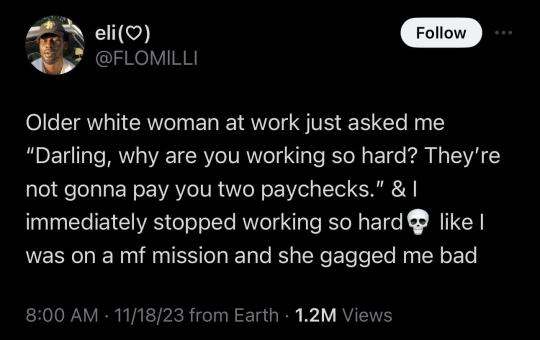#Communism
Text

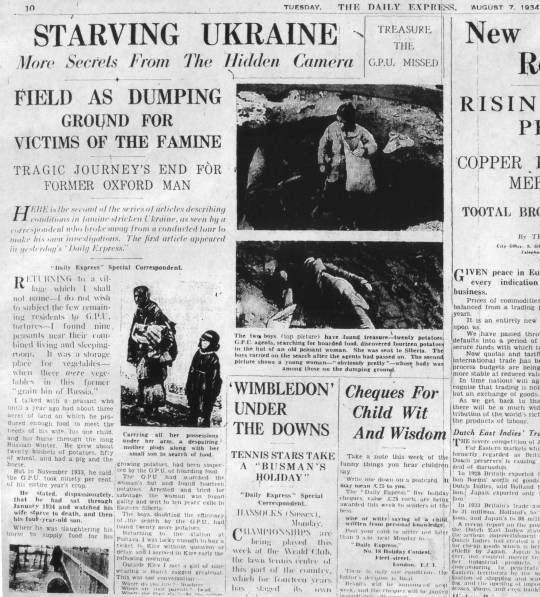
1930s reporting on Stalin's Holodomor genocide in Ukraine. 1 2
#ukrainian history#ukraine#communism#soviet union#genocide#ussr#stalin#communists#20th century#russia#eastern europe#1930s
206 notes
·
View notes
Text
A Speech For the Colonist.
It is my opinion that communist movements within the US fail because they refuse to address decolonization.
It is my further opinion that the contradiction between colonizer and colonized supercedes the contradiction of class. The Native American Nations are colonized, Black people are colonized, Hispanic people are colonized. Colonization is the key to white supremacy and white supremacy is the key to class within the United States and Canada.
If you talk to most white communists about decolonization within the United States you'll get things like, "Well, decolonization will come with the revolution because we'll give the people the autonomy and resources they need to care for their communities." This is the exact same rhetoric that alienated black revolutionaries from the American Communist Party in the 60s. "Under communism every worker will have what he needs and be able to give according to his means, so we don't need to worry about race."
Comrade, we do. We do need to worry about race. We cannot simply wish a reality away because in our minds Everyone Will Be White in a communist society.
We need to acknowledge the fact that every single White Person within the United States, and the rest of the Americas for that matter, is a colonist. Our institutions are colonial. Our industry is colonial. Our cities are colonial. Our infrastructure is colonial. Our lawns are colonial. Every single aspect of our lives has its roots in colonization.
We still plunder the earth like we're sending silver and timber back to England and Spain.
By pretending that we are not colonists we make it impossible to address the ways in which we colonize. By ignoring the ways in which we colonize we fail to address the ways in which we are imperialist. By failing to address our imperialism we fail address capitalism.
We are colonists. Pretending that this isn't the case doesn't make it any less reality.
You'll acknowledge the fact that we live on stolen land but would you hand Seattle back to the Duwamish? Would you cede Delaware back to the Lenape? Would you take up arms, and then lay them down to a nation of people that are unlike you? Would you take up arms and lay them down again for a nation of people that you might not agree with politically? Have you confronted your fear that they would treat you just like we treat them?
For that matter, how have you addressed your conception of Black Nationalism? Any white communist will tell you that Nationalism as a concept is counter-revolutionary but how do you address the fact that there is an entire race of people who were ripped from their homes and forced to colonize another land? The solution certainly isn't Liberia, which is itself a colonial exercise.
How do you address the fact that any black person will tell you that a nation created for and by black americans would be a pretty good deal in their book? How do address the fact that our colonial nation isn't their nation and they know it? What do you do? Do you call them reactionary? Do you tell them that their desire for a home of their own is because we orphaned their ancestors and that they need to get over it?
Comrade, these are the questions you need to answer. You need to listen to the people we have colonized and you need to really observe our material conditions.
We live with the unique situation that, as a result of a vicious and often ignored genocide, the colonizers are the majority ethnic group within the colonized land. White people make up 57% of this country. And unlike other colonized regions, there's no France for us to return to. There's no England, there's no Belgium, there's no Netherlands, there's no Spain. The working class white is stuck here. It's up to us to address our own reality and to understand that, ultimately, no way and no how can we be the face of revolution within the united states.
No white led communist movement will prosper because, even now, we still have too much to lose. Our people will never start the fight as we are now. Understand that.
#This isn't the completed speech#Which I am writing as homework for my Rhetoric class#but it encapsulates a lot of the ideas I want to address#Colonization#Decolonization#Communism
127 notes
·
View notes
Text
Some more advice to the students ❤️🇵🇸
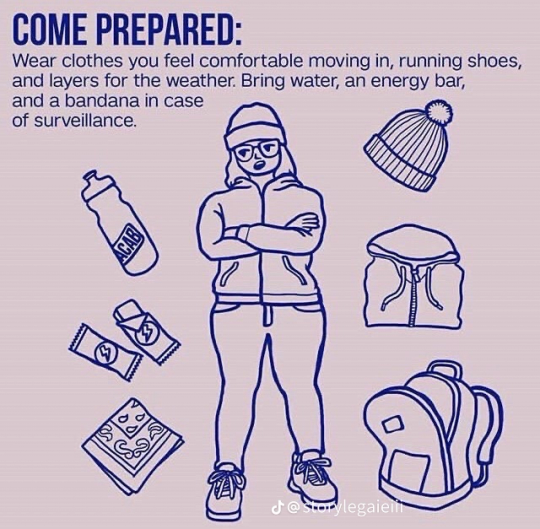
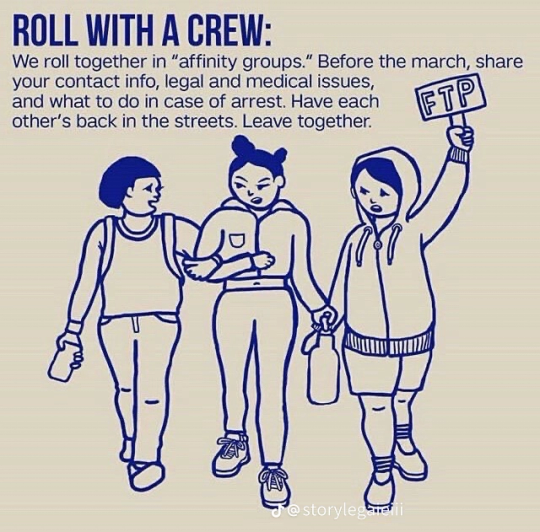
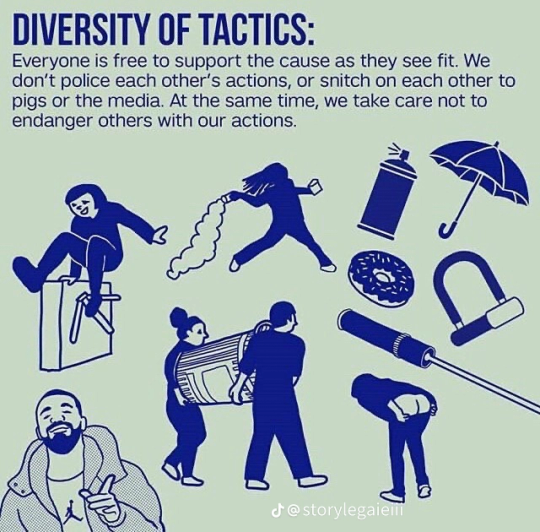
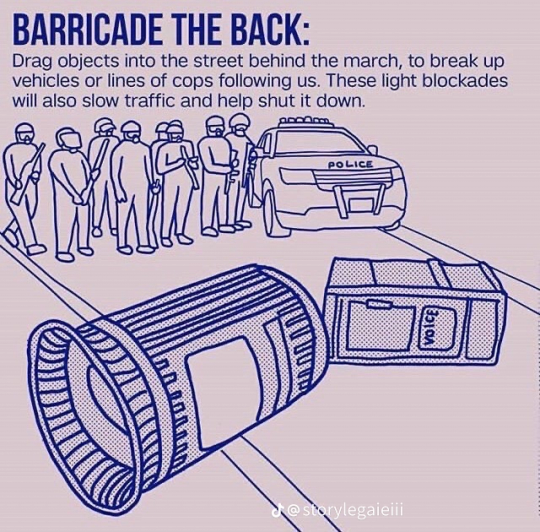
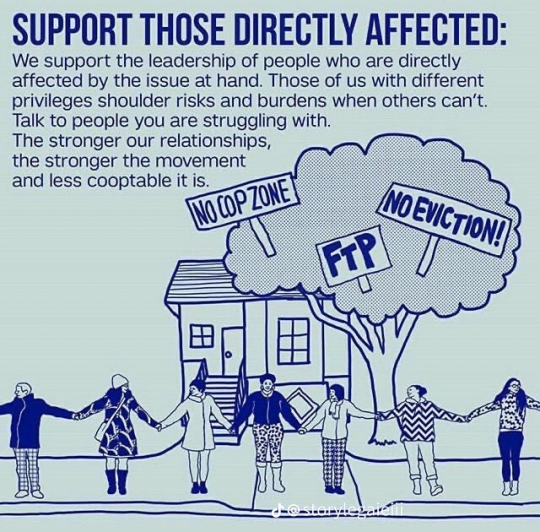

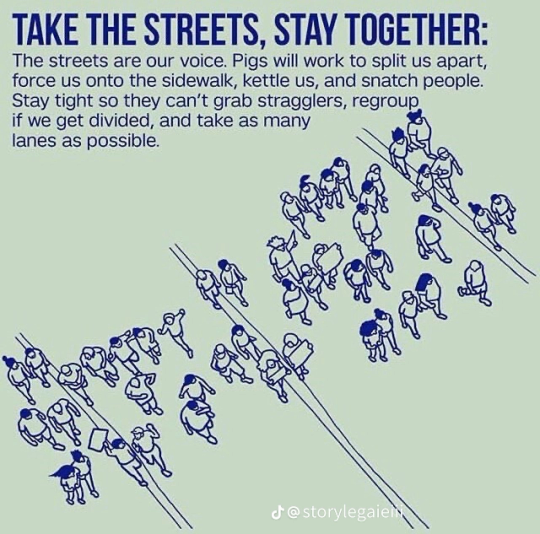
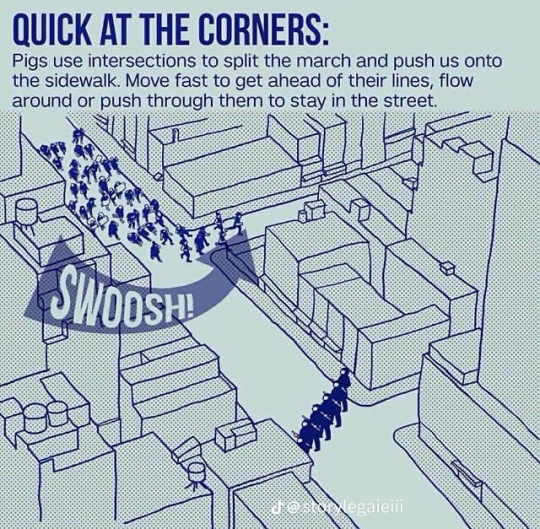
#history#communism#marxism#politics#socialism#current events#student#gaza#gaza solidarity encampment#news#columbia university#protest#preparedness#students#youth#palestine#solidarity#antifascism#acab1312#university#march#intifada#gaza genocide#palestinian genocide#socialist revolution#social justice#cops#defund the police#divestment#boycott israel
106 notes
·
View notes
Text

Khreshchatyk, Kyiv's main street, blown up by the russians on the 24th of September, 1941. It was part of a long pattern of communist cultural destruction across Ukraine, which included the demolition of medieval cathedrals and churches.
#ukraine#kyiv#soviet union#ussr#communism#russian colonialism#russia#world war 2#world war ii#20th century#black and white#world capitals#ukrainian history#eastern europe#1941#1940s
74 notes
·
View notes
Text
instagram
#socialism#communism#new world order#democrats#climate change#republicans#wef#biden#trump#nwo#Instagram
72 notes
·
View notes
Text
#Stevonnie#Interview with the Vampire#southern gothic#oliver queen#my sewing#Syria#tudung hot#communism#jimin smut#ncis#gravure idol#gloria sol#yaoi recommendation
120 notes
·
View notes
Text
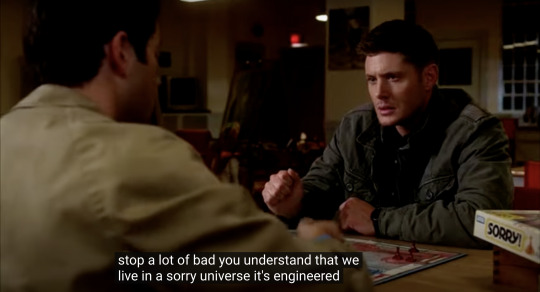
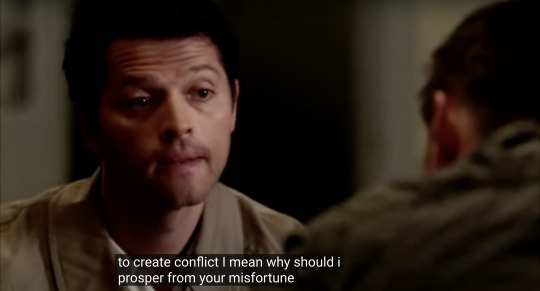
this was kind of a marxist thing for castiel the angel to say
32 notes
·
View notes
Text

A.2.11 Why are most anarchists in favour of direct democracy?
For most anarchists, direct democratic voting on policy decisions within free associations is the political counterpart of free agreement (this is also known as “self-management”). The reason is that “many forms of domination can be carried out in a ‘free.’ non-coercive, contractual manner… and it is naive… to think that mere opposition to political control will in itself lead to an end of oppression.” [John P. Clark, Max Stirner’s Egoism, p. 93] Thus the relationships we create within an organisation is as important in determining its libertarian nature as its voluntary nature (see section A.2.14 for more discussion).
It is obvious that individuals must work together in order to lead a fully human life. And so, ”[h]aving to join with others humans” the individual has three options: “he [or she] must submit to the will of others (be enslaved) or subject others to his will (be in authority) or live with others in fraternal agreement in the interests of the greatest good of all (be an associate). Nobody can escape from this necessity.” [Errico Malatesta, Life and Ideas, p. 85]
Anarchists obviously pick the last option, association, as the only means by which individuals can work together as free and equal human beings, respecting the uniqueness and liberty of one another. Only within direct democracy can individuals express themselves, practice critical thought and self-government, so developing their intellectual and ethical capacities to the full. In terms of increasing an individual’s freedom and their intellectual, ethical and social faculties, it is far better to be sometimes in a minority than be subject to the will of a boss all the time. So what is the theory behind anarchist direct democracy?
As Bertrand Russell noted, the anarchist “does not wish to abolish government in the sense of collective decisions: what he does wish to abolish is the system by which a decision is enforced upon those who oppose it.” [Roads to Freedom, p. 85] Anarchists see self-management as the means to achieve this. Once an individual joins a community or workplace, he or she becomes a “citizen” (for want of a better word) of that association. The association is organised around an assembly of all its members (in the case of large workplaces and towns, this may be a functional sub-group such as a specific office or neighbourhood). In this assembly, in concert with others, the contents of his or her political obligations are defined. In acting within the association, people must exercise critical judgement and choice, i.e. manage their own activity. Rather than promising to obey (as in hierarchical organisations like the state or capitalist firm), individuals participate in making their own collective decisions, their own commitments to their fellows. This means that political obligation is not owed to a separate entity above the group or society, such as the state or company, but to one’s fellow “citizens.”
Although the assembled people collectively legislate the rules governing their association, and are bound by them as individuals, they are also superior to them in the sense that these rules can always be modified or repealed. Collectively, the associated “citizens” constitute a political “authority”, but as this “authority” is based on horizontal relationships between themselves rather than vertical ones between themselves and an elite, the “authority” is non-hierarchical (“rational” or “natural,” see section B.1 — “Why are anarchists against authority and hierarchy?” — for more on this). Thus Proudhon:
“In place of laws, we will put contracts [i.e. free agreement]. — No more laws voted by a majority, nor even unanimously; each citizen, each town, each industrial union, makes its own laws.” [The General Idea of the Revolution, pp. 245–6]
Such a system does not mean, of course, that everyone participates in every decision needed, no matter how trivial. While any decision can be put to the assembly (if the assembly so decides, perhaps prompted by some of its members), in practice certain activities (and so purely functional decisions) will be handled by the association’s elected administration. This is because, to quote a Spanish anarchist activist, “a collectivity as such cannot write a letter or add up a list of figures or do hundreds of chores which only an individual can perform.” Thus the need “to organise the administration.” Supposing an association is “organised without any directive council or any hierarchical offices” which “meets in general assembly once a week or more often, when it settles all matters needful for its progress” it still “nominates a commission with strictly administrative functions.” However, the assembly “prescribes a definite line of conduct for this commission or gives it an imperative mandate” and so “would be perfectly anarchist.” As it “follows that delegating these tasks to qualified individuals, who are instructed in advance how to proceed, … does not mean an abdication of that collectivity’s own liberty.” [Jose Llunas Pujols, quoted by Max Nettlau, A Short History of Anarchism, p. 187] This, it should be noted, follows Proudhon’s ideas that within the workers’ associations “all positions are elective, and the by-laws subject to the approval of the members.” [Proudhon, Op. Cit., p. 222]
Instead of capitalist or statist hierarchy, self-management (i.e. direct democracy) would be the guiding principle of the freely joined associations that make up a free society. This would apply to the federations of associations an anarchist society would need to function. “All the commissions or delegations nominated in an anarchist society,” correctly argued Jose Llunas Pujols, “must be subject to replacement and recall at any time by the permanent suffrage of the section or sections that elected them.” Combined with the “imperative mandate” and “purely administrative functions,” this “make[s] it thereby impossible for anyone to arrogate to himself [or herself] a scintilla of authority.” [quoted by Max Nettlau, Op. Cit., pp. 188–9] Again, Pujols follows Proudhon who demanded twenty years previously the “implementation of the binding mandate” to ensure the people do not “adjure their sovereignty.” [No Gods, No Masters, vol. 1, p. 63]
By means of a federalism based on mandates and elections, anarchists ensure that decisions flow from the bottom-up. By making our own decisions, by looking after our joint interests ourselves, we exclude others ruling over us. Self-management, for anarchists, is essential to ensure freedom within the organisations so needed for any decent human existence.
Of course it could be argued that if you are in a minority, you are governed by others (“Democratic rule is still rule” [L. Susan Brown, The Politics of Individualism, p. 53]). Now, the concept of direct democracy as we have described it is not necessarily tied to the concept of majority rule. If someone finds themselves in a minority on a particular vote, he or she is confronted with the choice of either consenting or refusing to recognise it as binding. To deny the minority the opportunity to exercise its judgement and choice is to infringe its autonomy and to impose obligation upon it which it has not freely accepted. The coercive imposition of the majority will is contrary to the ideal of self-assumed obligation, and so is contrary to direct democracy and free association. Therefore, far from being a denial of freedom, direct democracy within the context of free association and self-assumed obligation is the only means by which liberty can be nurtured (“Individual autonomy limited by the obligation to hold given promises.” [Malatesta, quoted by quoted by Max Nettlau, Errico Malatesta: The Biography of an Anarchist]). Needless to say, a minority, if it remains in the association, can argue its case and try to convince the majority of the error of its ways.
And we must point out here that anarchist support for direct democracy does not suggest we think that the majority is always right. Far from it! The case for democratic participation is not that the majority is always right, but that no minority can be trusted not to prefer its own advantage to the good of the whole. History proves what common-sense predicts, namely that anyone with dictatorial powers (by they a head of state, a boss, a husband, whatever) will use their power to enrich and empower themselves at the expense of those subject to their decisions.
Anarchists recognise that majorities can and do make mistakes and that is why our theories on association place great importance on minority rights. This can be seen from our theory of self-assumed obligation, which bases itself on the right of minorities to protest against majority decisions and makes dissent a key factor in decision making. Thus Carole Pateman:
“If the majority have acted in bad faith… [then the] minority will have to take political action, including politically disobedient action if appropriate, to defend their citizenship and independence, and the political association itself… Political disobedience is merely one possible expression of the active citizenship on which a self-managing democracy is based … The social practice of promising involves the right to refuse or change commitments; similarly, the practice of self-assumed political obligation is meaningless without the practical recognition of the right of minorities to refuse or withdraw consent, or where necessary, to disobey.” [The Problem of Political Obligation, p. 162]
Moving beyond relationships within associations, we must highlight how different associations work together. As would be imagined, the links between associations follow the same outlines as for the associations themselves. Instead of individuals joining an association, we have associations joining confederations. The links between associations in the confederation are of the same horizontal and voluntary nature as within associations, with the same rights of “voice and exit” for members and the same rights for minorities. In this way society becomes an association of associations, a community of communities, a commune of communes, based upon maximising individual freedom by maximising participation and self-management.
The workings of such a confederation are outlined in section A.2.9 ( What sort of society do anarchists want?) and discussed in greater detail in section I (What would an anarchist society look like?).
This system of direct democracy fits nicely into anarchist theory. Malatesta speaks for all anarchists when he argued that “anarchists deny the right of the majority to govern human society in general.” As can be seen, the majority has no right to enforce itself on a minority — the minority can leave the association at any time and so, to use Malatesta’s words, do not have to “submit to the decisions of the majority before they have even heard what these might be.” [The Anarchist Revolution, p. 100 and p. 101] Hence, direct democracy within voluntary association does not create “majority rule” nor assume that the minority must submit to the majority no matter what. In effect, anarchist supporters of direct democracy argue that it fits Malatesta’s argument that:
“Certainly anarchists recognise that where life is lived in common it is often necessary for the minority to come to accept the opinion of the majority. When there is an obvious need or usefulness in doing something and, to do it requires the agreement of all, the few should feel the need to adapt to the wishes of the many … But such adaptation on the one hand by one group must be on the other be reciprocal, voluntary and must stem from an awareness of need and of goodwill to prevent the running of social affairs from being paralysed by obstinacy. It cannot be imposed as a principle and statutory norm…” [Op. Cit., p. 100]
As the minority has the right to secede from the association as well as having extensive rights of action, protest and appeal, majority rule is not imposed as a principle. Rather, it is purely a decision making tool which allows minority dissent and opinion to be expressed (and acted upon) while ensuring that no minority forces its will on the majority. In other words, majority decisions are not binding on the minority. After all, as Malatesta argued:
“one cannot expect, or even wish, that someone who is firmly convinced that the course taken by the majority leads to disaster, should sacrifice his [or her] own convictions and passively look on, or even worse, should support a policy he [or she] considers wrong.” [Errico Malatesta: His Life and Ideas, p. 132]
Even the Individual Anarchist Lysander Spooner acknowledged that direct democracy has its uses when he noted that ”[a]ll, or nearly all, voluntary associations give a majority, or some other portion of the members less than the whole, the right to use some limited discretion as to the means to be used to accomplish the ends in view.” However, only the unanimous decision of a jury (which would “judge the law, and the justice of the law”) could determine individual rights as this “tribunal fairly represent[s] the whole people” as “no law can rightfully be enforced by the association in its corporate capacity, against the goods, rights, or person of any individual, except it be such as all members of the association agree that it may enforce” (his support of juries results from Spooner acknowledging that it “would be impossible in practice” for all members of an association to agree) [Trial by Jury, p. 130-1f, p. 134, p. 214, p. 152 and p. 132]
Thus direct democracy and individual/minority rights need not clash. In practice, we can imagine direct democracy would be used to make most decisions within most associations (perhaps with super-majorities required for fundamental decisions) plus some combination of a jury system and minority protest/direct action and evaluate/protect minority claims/rights in an anarchist society. The actual forms of freedom can only be created through practical experience by the people directly involved.
Lastly, we must stress that anarchist support for direct democracy does not mean that this solution is to be favoured in all circumstances. For example, many small associations may favour consensus decision making (see the next section on consensus and why most anarchists do not think that it is a viable alternative to direct democracy). However, most anarchists think that direct democracy within free association is the best (and most realistic) form of organisation which is consistent with anarchist principles of individual freedom, dignity and equality.
#vote#voting#elections#faq#anarchy faq#revolution#anarchism#daily posts#communism#anti capitalist#anti capitalism#late stage capitalism#organization#grassroots#grass roots#anarchists#libraries#leftism#social issues#economy#economics#climate change#climate crisis#climate#ecology#anarchy works#environmentalism#environment#solarpunk#anti colonialism
23 notes
·
View notes
Text
How the fuck can you consider yourself leftist if your belief is that a leftist society is the ideal but that you believe that for practicality we need to only fight for an implement centrist policies due to "practicality". Like, you do realize that "communism works on paper but it's not possible in practice" is a standard conservative talking point meant to dissmiss leftism?
This appeal to practicality, calling leftist advocates naive, and telling them to change the system from within, used to be the realm of boomer conservatives who used to be leftists, now it's the line of millennial conservatives who used to be leftists and they don't even have the politeness to call themselves conservatives. It's gotten past the point where that's even only being used agaisnt the really radical stuff, you now have people who don't want any advocacy for trans people because they see it as bad optics.
I don't remember who said it, but I once heard someone quote something to the tune of "the only way we've ever gotten any progress to happen in any span of time, is by demanding everything right now."
#196#my thougts#leftist#leftism#communist#communism#anticapitalism#anti capitalist#anti capitalism#capitalism#social issues#social justice#socialist#socialism#social media#capitalist dystopia#capitalist hell#trans rights#queer rights#queer liberation#trans liberation#enby#nonbinary#transgender#praxis#workers rights#propaganda#anti imperialism#revolutionary#socialist revolution
19 notes
·
View notes
Text

20 notes
·
View notes
Text
Reminder that no one in history has ever gotten their freedom by appealing to the mercy of their oppressors 💜🔥
#im not advocating for violence#but only for legal reasons#sociology student#social justice#communism#eat the rich#fat liberation#free gaza#socialism#trans liberation#disabled#marxist feminism#marxist#marxism#karl marx#marxism leninism#lgbtq community#communist#socialist revolution#socialist politics#sociology
19 notes
·
View notes
Text
welp, seems there's yet more ridiculous discourse going on on twitter atm, so:
the fallout tv series is actually really fuckin good.
40k introducing fem custodes is pretty cool actually.
#anarchism#communism#socialism#marxism#socialist#leftism#leftist#communist#left wing#ancom#fallout#40k#warhammer 40k#freepalestine#from the river to the sea palestine will be free#anarco communism#anarchoqueer#queer anarchism#trans liberation#queer liberation
17 notes
·
View notes
Text
A Critique of the Western Left
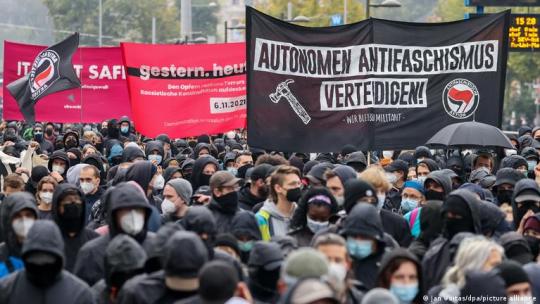
The Western Left has been marred by infighting in recent years, effectively crippling any capacity it has to fight back against the vicious capitalist system it rightfully opposes.
In my eyes, I see two main contributing factors to the general incompetency of the Left in the Western world. Infighting and ineffective campaigning.
Infighting between sects within the left along niche ideological lines stunts its ability to grow its membership and influence by making the movement look irrelevant, hostile, and elitist. The right isn't divided along small ideological lines. They can and will cooperate to spread their collective hateful ideologies. To combat this effectively, we need to put our differences aside and unite along our common enemy: the capitalist system. Only when the abolition of capitalism has been undertaken can we afford to disagree on minor policy and theoretical differences.
Secondly, Leftist campaigning is so focused on ideological niches that it no longer appeals to the working people. The average worker is not concerned about who Gonzalo was. They are too busy worrying about food, about rent, about utilities and education, and safety. We need to campaign issues that are affecting the people the most. We NEED to appeal to the masses and embrace left-wing populism to garner the popular support needed to oppose fascism if we want any chance of facilitating positive and lasting change.
We have a common enemy, and we must not fight each other. Instead, we must work together for the good of the people and for the good of the planet.
#anarchism#anarchocommunism#communism#cops#current events#gaza#gaza solidarity encampment#genocide#history#antifascism#antifascist#antifascismo#antifaschistische aktion#leftism#left wing#socialist revolution#columbia university#divestment#marxism#unity#palestinian liberation#black liberation#trans liberation#womens liberation#protest#ecosocialism#palestine#progressive politics#essay#blog
35 notes
·
View notes
Text
Not socialist in a “I won’t have to work” type of way but socialist in a “I’ll still be working but I won’t be worried I won’t make the rent” type of way. In a “billions won’t be hoarded by one person” type of way. In a “janitors, fast-food workers, child care workers, preschool teachers, hotel clerks, personal care and home health aides, and grocery store cashiers, will live comfortably” type of way. In a “the sick and elderly will be cared for” type of way. In a “no child should work” type of way.
#socialist#socialism#communism#anti capitalism#the belief that we won’t work under capitalism genuinely makes me so mad#like#you realize the goal of social reform is to abolish imperialism right?#there won’t be good just showing up out of nowhere without slavery and/or imperialism
86K notes
·
View notes
Text
instagram
#socialism#communism#new world order#democrats#climate change#republicans#wef#biden#trump#nwo#Instagram
24 notes
·
View notes
